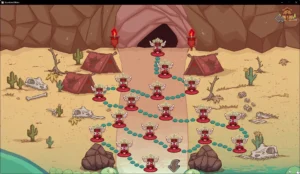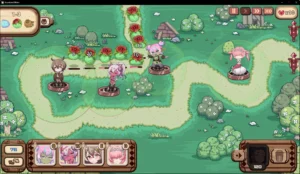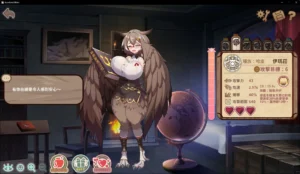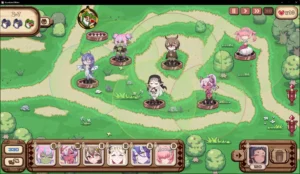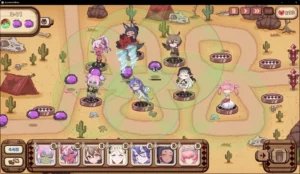
Guardians of Eden review
A Deep Dive into the Game’s Unique Features
Guardians of Eden is a captivating game that offers a blend of exploration and strategic management. Players are tasked with guiding a character through a treacherous dungeon while navigating complex social dynamics. This game stands out for its unique blend of adventure and interpersonal relationships, making it a fascinating topic for gamers and enthusiasts alike.
Gameplay Mechanics
Exploring the Dungeon
Diving into the heart of Guardians of Eden gameplay means embracing the thrill of dungeon exploration. It’s not just about swinging swords; it’s a tense, strategic crawl through shifting corridors and trap-laden halls. I remember my first run into the Whispering Catacombs—I got cocky, ignored a crumbling wall symbol, and got swarmed by spectral beetles. 😅 Lesson learned! Every tile matters here. You’ll face environmental puzzles like pressure plates that trigger cascading boulders 🪨, and timed door mechanisms. Resource management is brutal: torches flicker out, healing salves run dry, and one wrong turn can strand you. These challenges in Guardians of Eden force you to adapt or perish.
Key tips for survival:
– Always pack redundant light sources (trust me, darkness is lethal).
– Study environmental cues—moss growth, scratch marks, or echoing drips hint at traps.
– Rotate party roles; fatigue sets in, weakening combat effectiveness.
Here’s a quick reference for early dungeon zones:
| Zone | Key Hazard | Resource Priority |
|---|---|---|
| Ember Caves | Lava geysers | Heat-resistant gear |
| Gloomroot Forest | Ambushing vines | Slashing weapons |
| Shale Quarry | Collapsing tunnels | Propping timbers |
Managing Social Interactions
Outside the dungeons, your sanctuary thrives—or crumbles—based on social management. Every villager has layered personalities, not just “quest dispensers.” Take Elara, the herbalist. Ignore her requests for rare moonblooms, and she’ll withhold critical antidotes during plague events. 😬 But gift her a pressed glacier lily? Suddenly, she shares secret foraging maps! NPC interactions dynamically alter alliances, trade rates, and even dungeon access. Your choices ripple through game progression: exile a thief, and lose black market connections; pardon them, and risk loyalty drops among farmers.
💡 Pro Tip: Talk to everyone after major dungeon runs. Their reactions to your loot or losses reveal hidden quest triggers!
Example: I once prioritized mining upgrades over the weaver’s plea for defense. When raiders attacked, cloth armor tore like paper—a brutal lesson in strategic decision-making. Balancing morale meters (shown below) is non-negotiable:
| NPC Type | Key Need | Neglect Consequence |
|---|---|---|
| Artisans | Rare materials | Stop crafting elite gear |
| Guards | Weapon upgrades | Sanctuary vulnerability |
| Farmers | Land security | Food shortages |
Strategic Decision-Making
Here’s where Guardians of Eden gameplay truly shines. Every choice—from dungeon paths to dialogue trees—carries weight. Do you spend iron reinforcing gates 🛡️ or forging new swords? Save a village elder from a cave-in, or grab the artifact guaranteeing later victory? I agonized for 10 minutes over this once—chose the elder, lost the relic, but gained a storyteller who revealed hidden boss weaknesses. 🤯 That’s the magic! Strategic decision-making permeates everything:
- Party Composition: Bringing a botanist might avoid poison fights, but sacrifices firepower.
- Time Allocation: Dungeon delving vs. sanctuary repairs affects event timers.
- Crisis Response: Floods demand engineers; bandit raids need warriors.
Resource scarcity forces brutal trade-offs. Early on, I funneled everything into combat upgrades, only to starve during a harsh winter ❄️. Now, I use a 40/30/30 split: necessities/luxuries/emergencies. This layered dungeon exploration and social strategy creates a relentless, rewarding loop. You’re not just playing—you’re sculpting a living world where every alliance and artifact reshapes your destiny. ✨
Final Insight: Treat NPCs like real people, dungeons like survival puzzles, and resources like gold dust. The challenges in Guardians of Eden aren’t just obstacles—they’re the forge that makes victory unforgettable.
In conclusion, Guardians of Eden offers a unique gaming experience that combines exploration with complex social dynamics. By understanding its gameplay mechanics and strategic elements, players can enhance their experience and appreciate the depth of the game. For those interested in exploring more, diving into the game’s community and forums can provide valuable insights and strategies.


